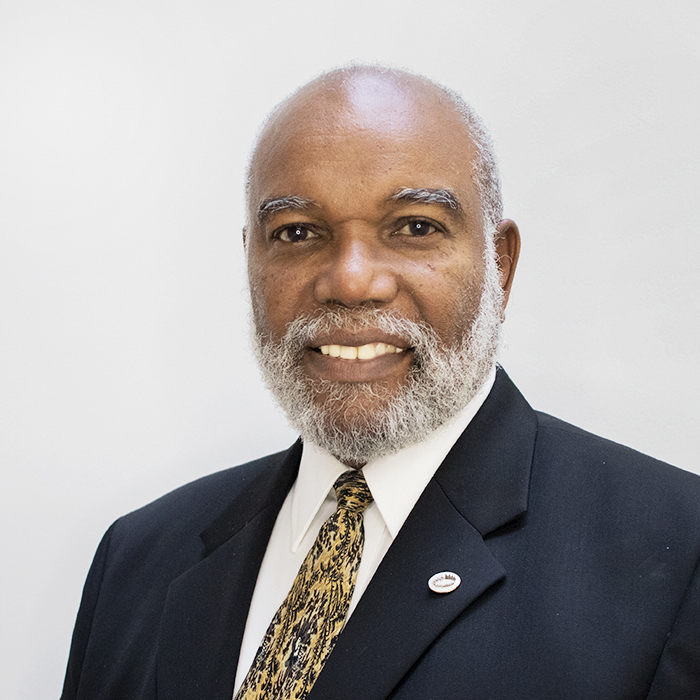
Zeno Charles-Marcel, MD
Be Thankful
As I was telling my son, Austin, what I was writing about his ears perked up and he had that certain “thoughtful look” on his face. “What are you thinking?” I asked.
“It’s just that you’re reminding me of the story of Corrie Ten Boom and her sister, Betsie, when they were in prison camp in Germany…” He went on to remind me of the episode in the Hiding Place in which the sisters were placed in flea-infested barracks. To be certain of the details he retrieved the book and gave it to me with the story pages marked… (p. 194)
The sisters had read on the morning of their plight, 1 Thessalonians 5:18 which states “in all circumstances give thanks for this is the will of God concerning you in Christ Jesus.” Betsie led Corrie in prayer to acknowledge with thanksgiving all of the features of their circumstance: “‘give thanks in all circumstances’ she quoted. It doesn’t say ‘pleasant circumstances’, fleas are part of this place where God has put us.” Corrie later penned “and so we stood between piers and bunks and gave thanks for fleas. This time I was sure Betsie was wrong.” In those crammed quarters (Barracks 28) the sisters along with Christians of various faiths, held bible studies largely unimpeded by the prison guards or camp authorities; the place was described as a doorway to heaven as many women came to know Jesus on their death beds being boldly ministered to by the faithful women of the barracks. It was not until months had passed that it was revealed why the prison guards and other authorities allowed this “freedom to associate and minister” in these quarters – no one wanted to enter because of the fleas! Corrie states in her book that upon learning this: “my mind rushed back to our first hour in this place. I remembered Betsie’s bowed head, remembered her thanks to God for creatures I could see no good use for.” (p. 204)
The Bible is full of great counsel; if only we would take heed and, by God’s grace, follow its advice! God has preserved the Holy Scriptures for our good and following its precepts and principles leads to a life in harmony with God and His desire for us. Take the simple advice of Paul to the Thessalonians: “Rejoice always, pray without ceasing, in everything give thanks; for this is the will of God in Christ Jesus for you.” 1 Thessalonians 5:16-18 (NKJV). This article will focus on the last of the three admonitions: in everything give thanks.
Over the past 25 years, there has been a surge of interest in “thanks” and “gratitude” by social scientists, psychologists, philosophers and other medical researchers. The underlying questions are: what is “thanks” (or gratitude) and does this confer any health benefit upon the individuals who express or possess this attribute?
So, what is “thanks”?
According to the Online Etymology Dictionary1 the English word “thanks” comes from the Old English noun anc, onc, originally “thought”, but by c. 1000 morphed in meaning to “good thoughts, gratitude.” Patricia T. O’Conner and Stewart Kellerman in Grammarphobia2 state that the root was reconstructed as thankaz, which gave us the Old English words thencan (to think, to conceive in the mind), thoht (thought), thanc (meaning thought, good will, gratitude), thancian (to thank), and thyncan (to seem or appear). As I reviewed the current research, it appears to me that researchers prefer to use “gratitude” as the surrogate for thanks and thankfulness. So the terms will be used interchangeably from here forward. The Harvard Health Letter points out “the word gratitude is derived from the Latin word gratia, which means grace, graciousness, or gratefulness (depending on the context)… gratitude also helps people connect to something larger than themselves as individuals — whether to other people, nature, or a higher power.”
One practical definition of gratitude is used by Randy and Lori Sansone at Kettering in a recent article Gratitude and Well Being: The Benefits of Appreciation.3 They define gratitude as “the appreciation of what is valuable and meaningful to oneself and represents a general state of thankfulness and/or appreciation.” Another definition proposed in 2004 has found wide acceptance.4 In it, the researcher identified sufficient conditions for gratitude in terms of benefactor/recipient motives and benefits: A benevolent benefactor acts from a desire to help rather than a sense of duty, and the recipient receives a benefit and desires to express indebtedness and attachment to the benefactor. This latter definition is quite intriguing since it places gratitude in the context of benefactor-recipient interaction, one that is immediately applicable to the situation between a benevolent God (as benefactor) and us, undeserving but infinitely loved children as recipients of His grace.
There are multiple theoretical relationships between gratitude and wellbeing. It is axiomatic that experiencing gratitude, thankfulness, and appreciation tends to foster positive feelings, which in turn, contribute to a nonspecific sense of well-being. But there is more. Thankfulness has been shown to lower the incidence of eating disorders, phobias and anxiety, and even drug, alcohol and nicotine dependency. One research team studied three groups of subjects who were required to journal either daily or weekly under experimental conditions. One group was asked to journal about negative events or hassles, a second group about the things for which they were grateful, and a third group about neutral life events.5 The analysis of the results showed the ‘gratitude group’ consistently showed higher well-being in comparison to the other two study groups. Whether in adults or adolescents, the research shows the same positive relationship between gratitude and well-being. Froh studied adolescents who counted their blessings vs those who counted their hassles vs a control group and found the blessingscounters to have greater life satisfaction so remarkable that counting blessings was recommended as an effective intervention for enhancing well-being in adolescents. Research has also found that high school students who are grateful have higher GPAs – as well as better social integration and satisfaction with life – than their nongrateful counterparts.
But life satisfaction, good grades, and subjective well-being are not the only benefits of showing thankfulness. Gratitude stimulates the release of dopamine in the brain. This enhances the sense of well-being emotionally and physically. The dopamine also improves sleep, lowers stress and anxiety, and reduces physical discomfort.
Here are some specific benefits of thankfulness.
- It promotes physical health – Gratitude is associated with lower blood pressure, a stronger immune system and even a greater desire to engage in health behaviors like better diet and more optimal physical activity.
- It stimulates prosocial behavior even at personal cost – In 2006, a review of 3 studies published in Psychological Science showed that thankfulness increased helping behavior and increased efforts to assist a benefactor even when such efforts were emotionally and otherwise “costly”.
- It improves psychological health – Multiple studies by Robert Emmons and colleagues show that gratitude reduces “toxic” emotions such as envy, resentment, remorse, and frustration. Results indicate that for people who are highly grateful, both hopelessness and depressive symptoms are less likely to be associated with thoughts and intentions toward suicide.
- It reduces aggression and enhances empathy – Grateful people are more likely to be kind, and less likely to retaliate or seek revenge even when others act unkindly.
- It combats depression – In 2012, a review of eight studies involving 2,973 subjects showed that gratitude is related to fewer depressive symptoms as published in Cognition and Emotion.
- It generates resilience – Gratitude was a major contributor to resilience as seen in persons surviving the events of September 11, 2001. According to a study reported in the Journal of Personality and Social Psychology published in 2003. Recognizing and acknowledging one’s blessings fosters resilience especially when they seem to not be blessings at all or during the worst times of life.
- It promotes better sleep – In 2011, a study published in Applied Psychology: Health and Well-Being showed that keeping a gratitude journal (15 minutes spent writing down grateful sentiments) favored longer and more restful sleep.
Of special interest to the reader should be the results of a, yet to be published in print, study which supports the sage notion that people who are more grateful to God are more hopeful about the future, and this greater hope is associated with better health. While there are many more studies and encouraging results of the effects of being thankful, the above should bring into focus the point that a short phrase, given by a God of Love, has widespread and profound implications for our total well-being – BODY, MIND AND SPIRIT. So, in all things – Give Thanks for God wishes nothing but the BEST for you!
References: 1. http:// www.etymonline.com/ index. php?term=thank 2. http://www.grammarphobia.com/ grammar-html 3. Psychiatry (Edgmont). 2010 Nov; 7(11): 18-22. Published online 2010 Nov. PMCID: PMC3010965 4. Roberts, C. R. (2004). The blessings of gratitude: A conceptual analysis. In R. A. Emmons & M.E. McCullough (Eds.), The psychology of gratitude (pp. 58-78). New York: Oxford University Press. 5. Emmons RA, McCullough ME. “Counted blessings versus burdens: an experimental investigation of gratitude and subjective wellbeing in daily life.” Journal of Personal and Social Psychology 2003; 84:377-389. 6. http://greatergood.berkeley.edu/article/ item/why_gratitude_is_good
<< | Table of Contents | >>
